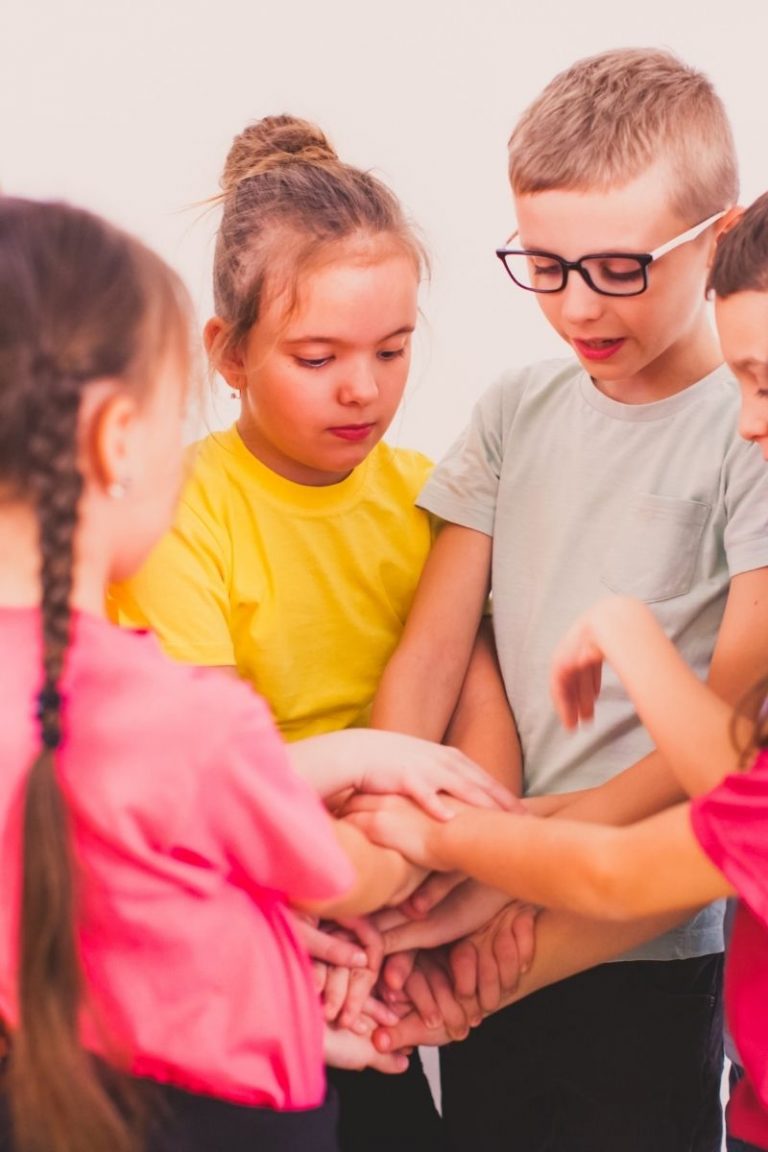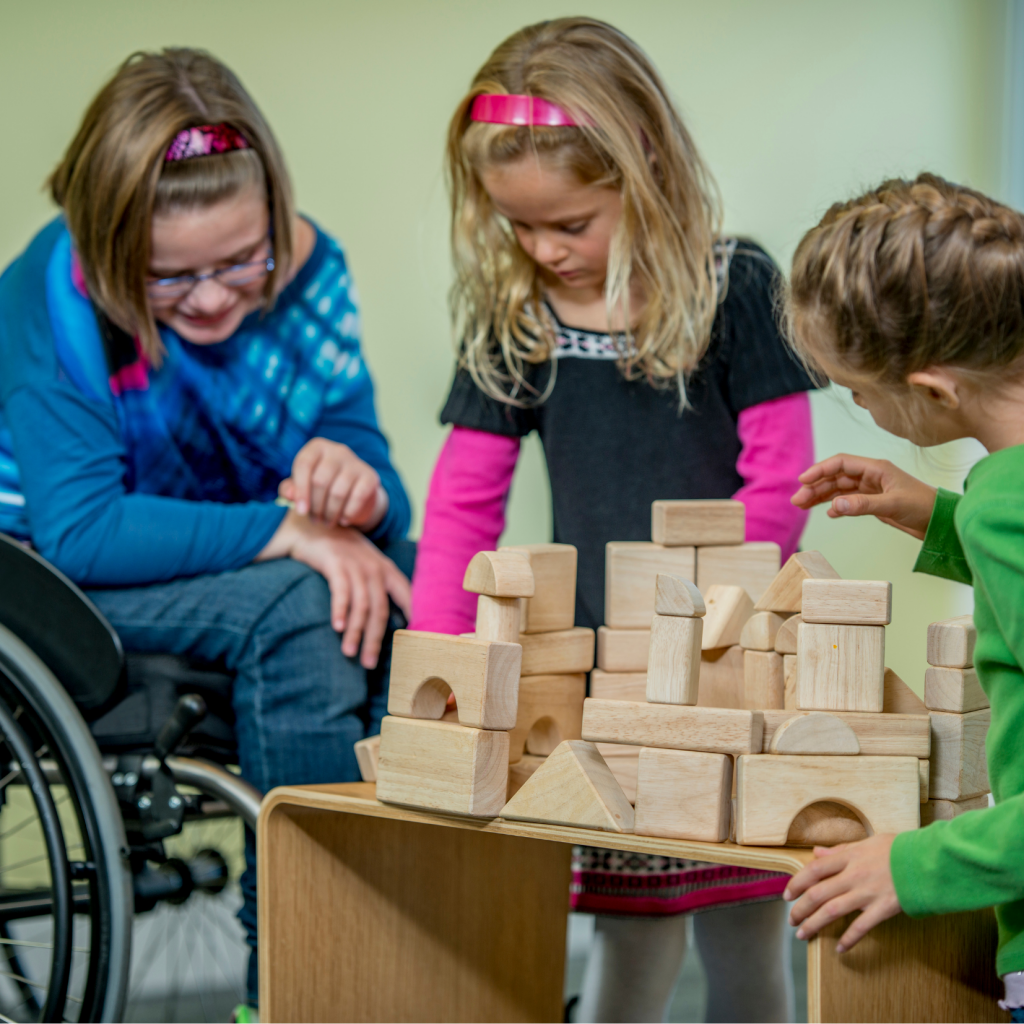Connecting with others is an important component to good mental health and a sense of belonging. And it often begins at home.

This week is Social Inclusion week, a time to reflect and think of ways to connect and include those around us.
At Windsor Child & Adolescent Psychology, we often work with children for whom connection feels complicated and overwhelming.
For some, the need for connection is strong but the skills and strategies to engage with others are not well developed.
Often children who are non neurotypical miss vital social cues that would enable them to read context, play structure and emotions.
For others, connecting with those that are similar seems easy but finding common ground with peers that are not neurologically, socially, physically or culturally like them is challenging.
Children who have experienced trauma, loss or anxiety may be hypervigilant and see social encounters as potentially dangerous or threatening. They may have become so familiar with internalising interactions with uncomfortable people and situations that they have low self esteem and may become targets for bullies or peers who tend to rely on them for support rather than being supportive. Or they may bully others.
For these groups, limited access to relationships can lead to feelings of loneliness, low self esteem, social anxiety, academic difficulty and depression.
So what can parents and carers do to assist young people to connect with and include people who are different?
We’ve come up with some ideas and strategies to help your family become an inclusive one. Scroll down to find out more.

Realise that Inclusion is a Learned Skill
Teach children from a young age about inclusion. This may mean checking your own views about others. Reflect on your neighbourhood, community, friendships and interactions. Then ask yourself how often your family interacts with people who are not like you. Do you have friends of different races, religions and abilities? Do you perpetuate stereotypes or see each person as an individual with abilities and struggles like all of us? Are you accepting of others?
Becoming an inclusive family may take some time and practise, but it can be one of the most rewarding skills your family learns.
Embrace Individuality
Celebrate uniqueness in yourself, your children and others. Find ways of using others’ appearance, quirkiness, beliefs, and viewpoints as an opportunity to remind your children that each person brings something to the world that cannot be duplicated.

Help them to see that each person has something to offer.
Teach your Child about Healthy Friendships
Teach your children about healthy relationships that have nothing to do with material things. Shift your child’s focus by promoting friendships based on kindness, empathy, trust and respect and not on getting in with the “popular crowd”. Remind them that popularity is not always the key to happiness or feeling accepted.
When relationships are encouraged around values that celebrate shared interests, compassion and an interest in learning about another person, there will be less focus and judgement of others based on social status or what they have and more on the value of each individual.
Reach Out
Teach your children to reach out to others and make each person feel valued. This may mean sitting with a classmate that often sits alone or inviting a child who has just moved into your community to their birthday party.
A good challenge might be to have your child find out one good thing about a person that they find particularly irritating. Encouraging your child in this way will help them to realise that there is good in everyone and that each person is capable of offering something valuable to the world.
Get Creative
Look for diverse friendships in diverse places. School is not the only place to make new friends. Expand your horizons and connect with people through a sporting team, a club or trying a new hobby. Go along to an international night or attend a cultural or religious festival. Kids who have friendship groups that are spread out over different settings are more likely to feel comfortable with and accepting of others. They are also less likely to be bullied since they are used to getting on with different types of people.
Encourage them to invite the new kid in the neighbourhood over for a play or join that Jujitsu class they’ve been wanting to try but haven’t because none of their friends go. Challenge them to talk to the child who doesn’t go to their school but who has piano lessons right after them or to the kids that they see each week at gymnastics. Looking outside the box for friendship may lead to a lifelong relationship all whilst broadening their worldview.
Give Them the Power
Although learning to be inclusive of everyone is an important skill to teach your child, they should always feel safe and valued in any relationship. Remind your child that is never okay for someone to physically or emotionally hurt them. Empower them to set healthy boundaries even if the person has a disability. Help them to do this in a respectful way that includes using “I” statements and assertive (not passive or aggressive) communication.
Mutual care and respect is vital in any relationship. Your child should always feel like they can walk away from a situation that feels unsafe or involves their having to “give in” to the other person’s choice all the time.
Teach Advocacy
Your child has more power than they realise to create a school culture where everyone feels valued and included. It takes just one person to stand up for a child being bullied for it to stop.
Encourage them to advocate for a child who is left out or ridiculed. They might choose their classmate first in P.E. or call out the bully on their unkind behaviour.
Peer pressure to be part of the popular group is strong but there is something powerful about being the person at school who is confident and kind enough to advocate for others.
Invite your child to imagine what it might feel like to be the one who has no one to sit with at lunch, never gets invited to parties or is laughed at in hallways.
Help them to see the power they have to change the course of another person’s day (or even their life) through advocating for others.

Monitor Online Communication
With so much of young people’s connection happening via social media, it’s important to keep an eye on what is happening in your child’s online world. A big part of helping your child navigate relationships is empowering them to engage in a healthy way with friends on their devices. Teach your children the importance of owning what they say online. Remind them that despite the feeling of anonymity that they have when they post or text, the recipient is a real person with real feelings. If they would not feel comfortable saying it in person, they should not say it online.
Instruct your children on the importance of keeping things positive. It’s easy for kids to get swept up in the drama of online arguments. Explain that even if they haven’t personally posted or texted something negative, whenever they like or share something that is racist, malicious or gets a laugh at someone else’s expense, it is just as hurtful.
Support your child when they have experienced an unsettling or painful interaction. Avoid brushing them off when they have been involved in an upsetting conversation. Provide a listening ear and resist the urge to solve the problem, invalidate it or take away their device altogether. Instead, support your child as they negotiate the next steps.
Walking with your child through difficult experiences will help to strengthen healthy thabits that will benefit them long term.
Get Help
Maybe you love the idea of helping your child be inclusive of others but you don’t know where to start. You’re realising that with the connections you already have in your community, you haven’t really been intentional about reaching out to people outside your network. Or maybe your child is the one that is constantly left out and comes home day after day feeling lonely and rejected. Whatever your story looks like, there is help available.
Check in with your child’s teacher, school counsellor, coach or even the admin staff for ideas. They can often point you in the direction of other students that might be a good fit for your child. They can also give you the inside scoop on groups, clubs or school activities that may help foster friendships.
Hopefully, some of these ideas have given you food for thought on cultivating inclusive relationships in your family, for your child and even for yourself. If you are finding that the difficulty your child experiences in connecting with others is negatively impacting their mental health, please contact us at Windsor Child & Adolescent Psychology.
Here’s to new friendships!